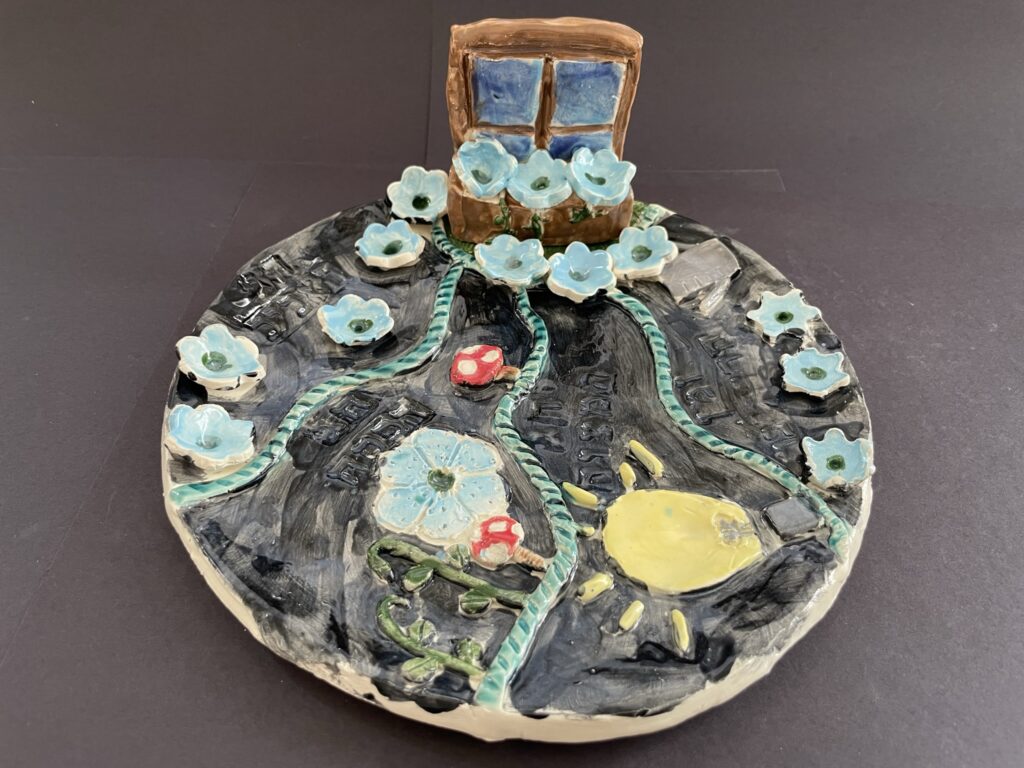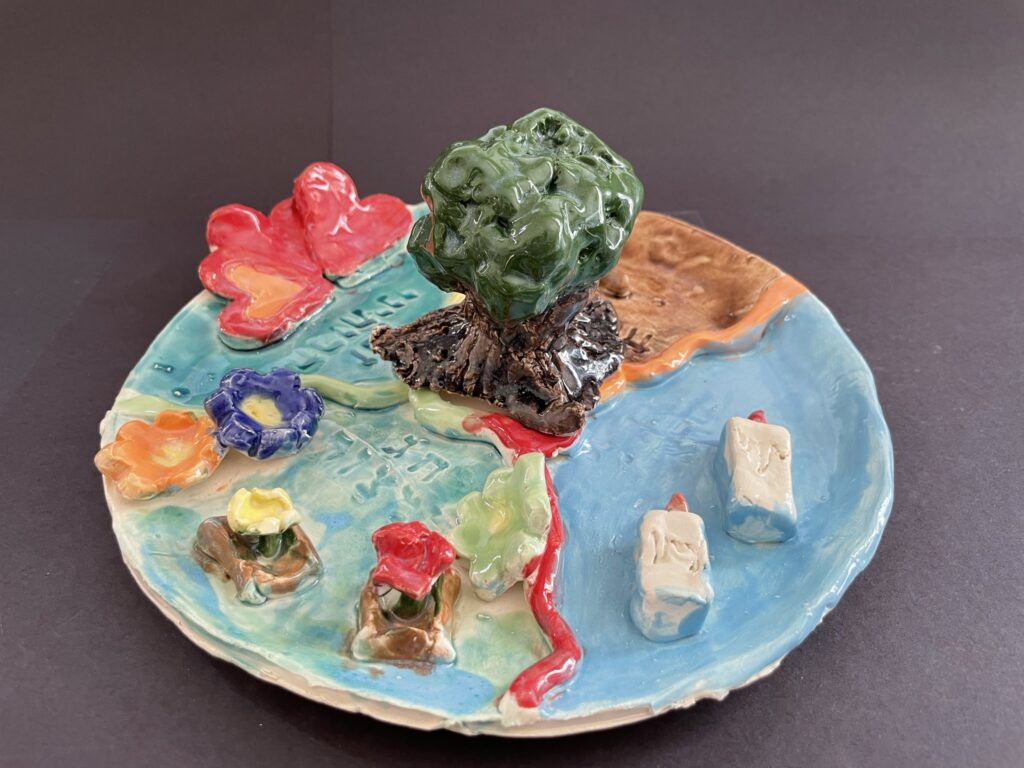
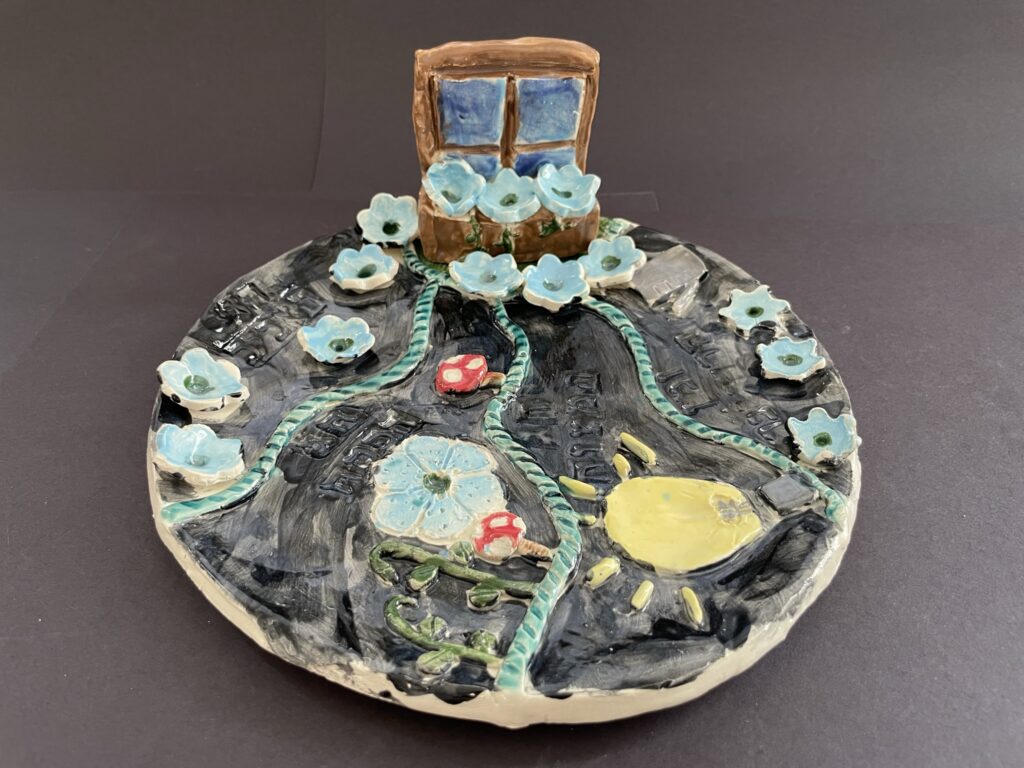
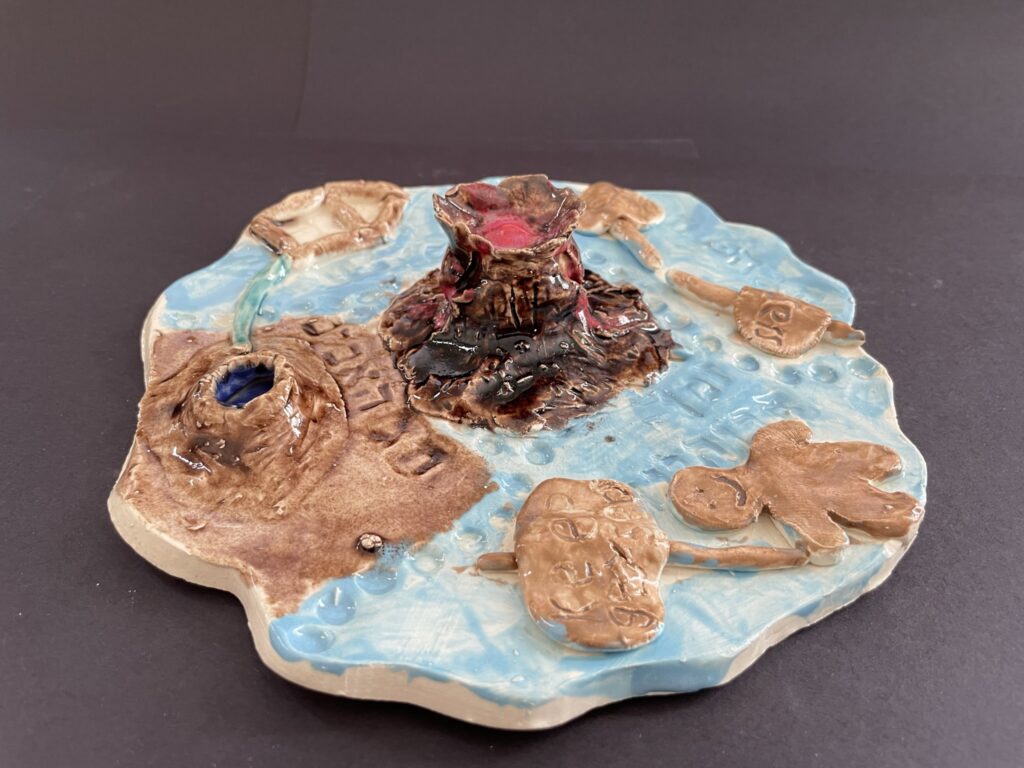
The Eco-Seder project allows each student to explore the four themes of Pesach: (1) personal responsibility, (2) renewal, (3) innovation, and (4) communal signs of commitment – by examining ONE part of the Pesach Seder. Each part of the Seder is connected to the environment in a specific way. For instance, the hand washing ( וּרְחַץ) is connected to water use; the eating of the green vegetable ( כַּרְפַּס) is connected to green spaces.
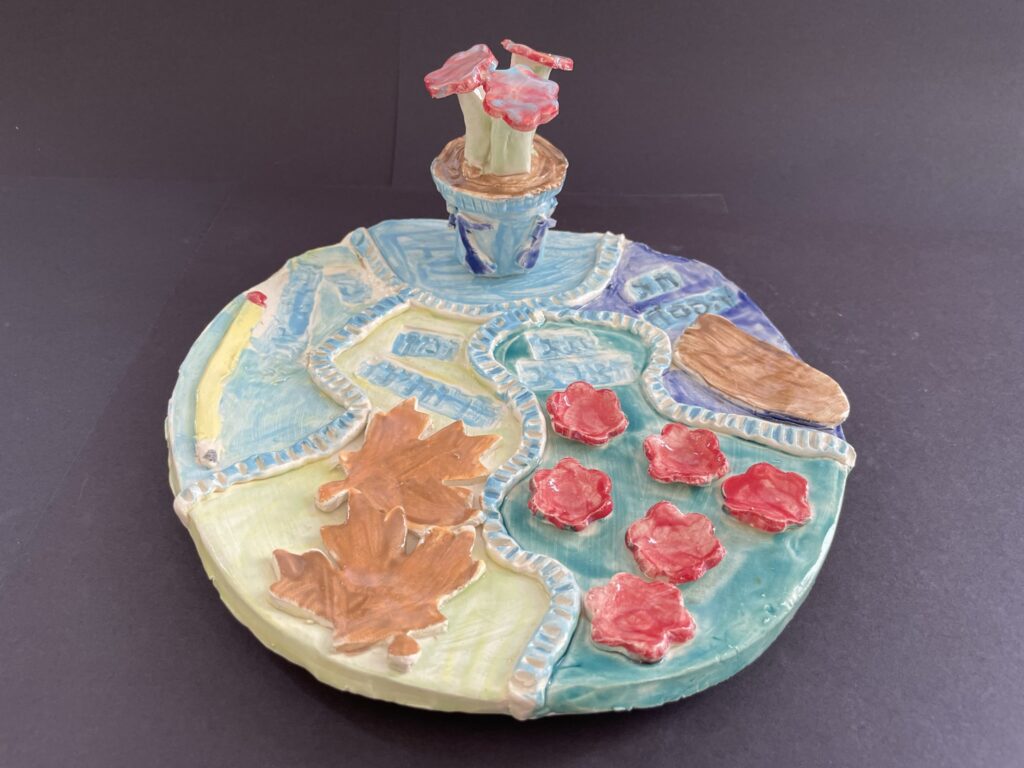
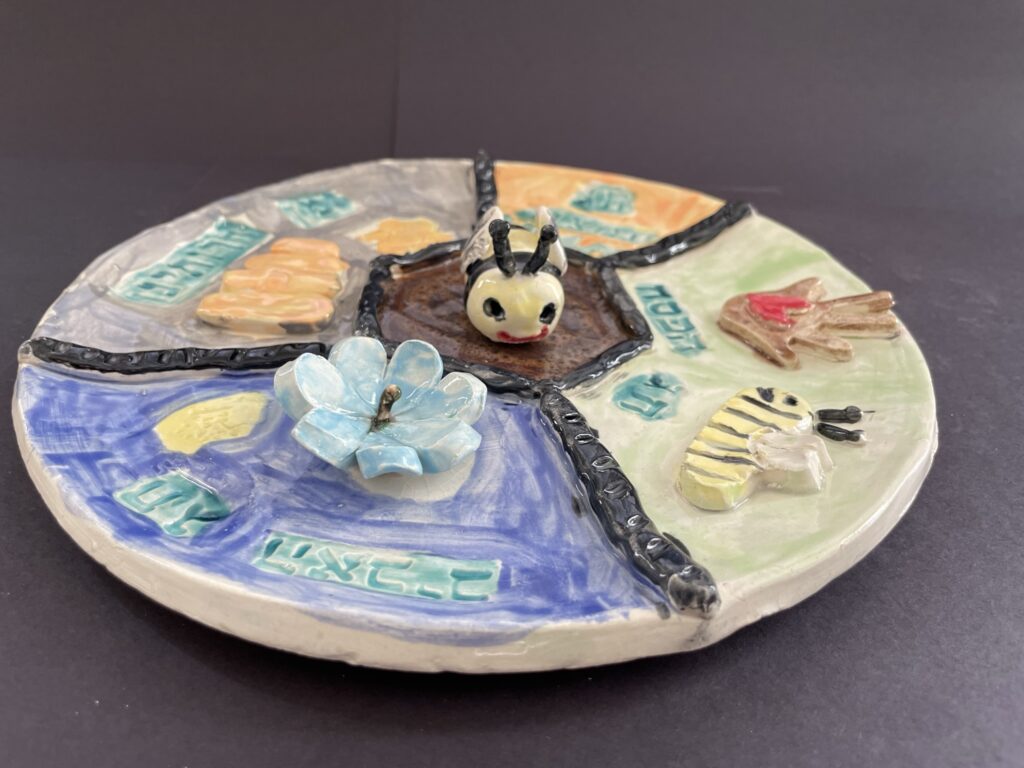
Using one of the parts of the Seder as a platform, each student interprets the four themes of Pesach through an environmental lens. Each student researches and investigates a number of different scientific resources to better understand the environmental issues and actions related to his/her topic. Students then use this information to develop two survey questions that form the basis of data analysis and interpretation. Students then sculpt a ceramic Seder Plate that reflects their research topic; they develop symbols that express the research that connects to each of the four themes, and create a dramatic centrepiece that expresses their topic as a whole. The Seder Plate becomes a reflection of their integrated learning across curricula as well as a lasting work of art.
